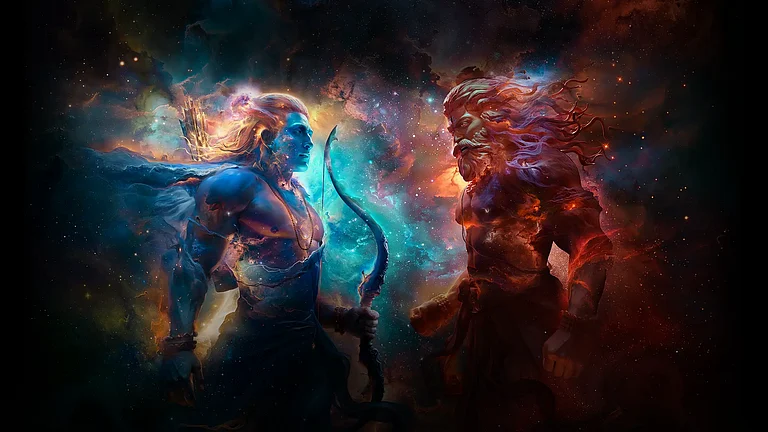More than three decades after Jurassic Park (1993) transformed the cinematic landscape, Jurassic World: Rebirth (2025) attempts to breathe new life into a franchise that has long been running on nostalgia and visual spectacle. Following the critical disappointment of Dominion (2022), this instalment sets out to recalibrate, both thematically and tonally. Directed by Gareth Edwards, the film introduces a mostly standalone storyline—one that positions itself as a reset rather than a continuation. At its centre is a high-risk expedition led by Zora Bennett (Scarlett Johansson) to a quarantined research island, where dinosaur DNA is being sought for pharmaceutical development. The stakes are urgent, the setting evocative, but the execution is uneven. This time, the focus shifts from malfunctioning labs and thrill-ride spectacles to the creatures themselves. Dominating every frame are giants like the Mosasaurus circling wreckage at sea, the thunderous Titanosaurus, and the destructive Distortus rex—each sequence crafted for impact and scale that demands to be witnessed on a theatrical canvas.
Jurassic World: Rebirth Review | Navigating the Thin Line Between Tribute & Transformation
Compared to Dominion, Rebirth is a noticeable step up in tone, visual ambition, and atmosphere. But even the most accomplished direction can’t mask the story’s lack of originality and coherence.
The film’s ensemble cast—Mahershala Ali, Scarlett Johansson, and Jonathan Bailey—bring a sense of gravity, but their roles are thinly written. Bailey, playing a wide-eyed paleontologist, offers a sincere performance, but the script doesn’t allow his character enough room to grow. Johansson’s Zora is positioned as a commanding lead, though much of her emotional weight is lost in a screenplay that prioritises plot mechanics over genuine depth. The dynamic between the human characters is serviceable but never compelling, which ultimately weakens the film’s emotional core. The emotional stakes feel underdeveloped. The Delgado family’s rescue lacks depth, and most secondary characters are written as little more than set pieces—present simply to be pursued.
Visually, the film is one of the strongest in the series since its inception. Shot on 35mm using anamorphic lenses, and set against the backdrop of Thailand’s dense jungles, Rebirth often feels like an aesthetic homage to Spielberg’s original. Edwards plays with scale and suspense effectively—particularly in the water-based sequences, which recall the dread and intimacy of Jaws (1975). Animatronic dinosaurs are blended seamlessly with digital effects, bringing the prehistoric creatures back to the narrative forefront. These moments of visual splendour restore some of the awe that has been missing from recent entries, if only momentarily.

Narratively, however, the film struggles to hold itself together. David Koepp, who last contributed to the franchise with The Lost World (1997), returns to the writer’s chair, but the result is a script that feels fragmented and undercooked. While Rebirth gestures at grander ideas—such as genetic manipulation, human greed, and ecological collapse—it rarely commits to any of them. Themes are introduced but quickly abandoned, characters speak in exposition rather than dialogue, and the pacing suffers from a lack of narrative cohesion. There’s also an overabundance of characters, including a subplot involving a marooned family whose presence adds little beyond confusion.
Where Rebirth falters most is in its inability to evolve the franchise beyond spectacle. The film leans heavily into action set-pieces, but without the philosophical tension or moral ambiguity that once made Jurassic Park more than just a monster movie. In pivoting toward a disaster-survival tone, Rebirth retains what once made dinosaurs terrifying and majestic—not just their scale, but what they represent. Here it offers thrilling threats and an immersive experience.
The film’s tempo is tight—the editing moves briskly between intense action and short-lived pauses, giving viewers just enough time to breathe before the next clash. The sound design is equally immersive: every roar, snap, and distant echo adds to a richly layered auditory experience.
While it doesn’t radically alter the genre’s path, Edwards delivers a visually commanding ride, driven by towering set pieces, expert sound work, and the familiar thrill of a rampaging T-Rex. The film isn’t without merit. Compared to Dominion, Rebirth is a noticeable step up in tone, visual ambition, and atmosphere. Edwards brings energy to the frame, and his command of cinematic language is evident. But even the most accomplished direction can’t mask the story’s lack of originality and coherence.
In the end, Jurassic World: Rebirth is a film caught between reverence and reinvention. It wants to honour its legacy while pushing the series forward, but rarely achieves either fully. The dinosaurs still impress, the visuals still shine—but the magic, once sparked by vision and restraint, remains elusive. For a franchise built on evolution, Rebirth feels like it’s simply circling back.
